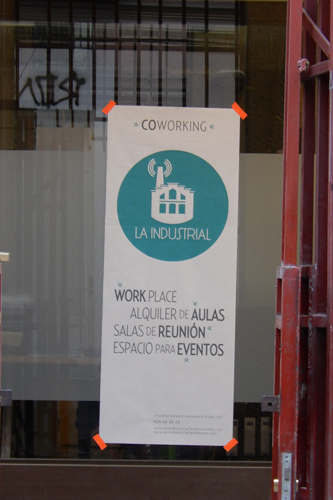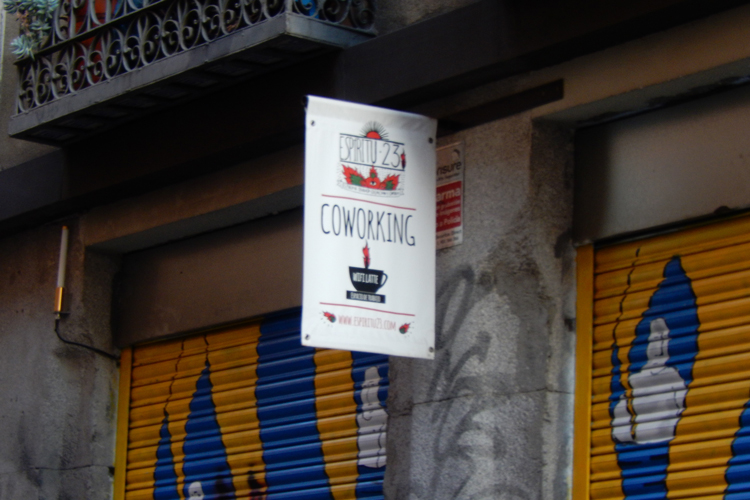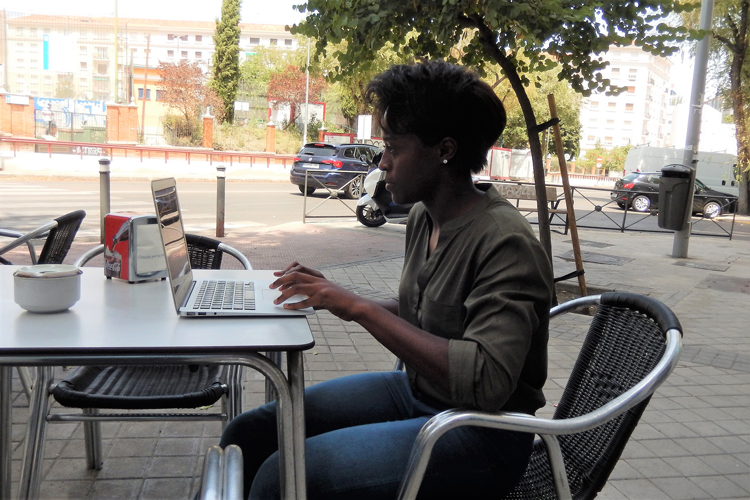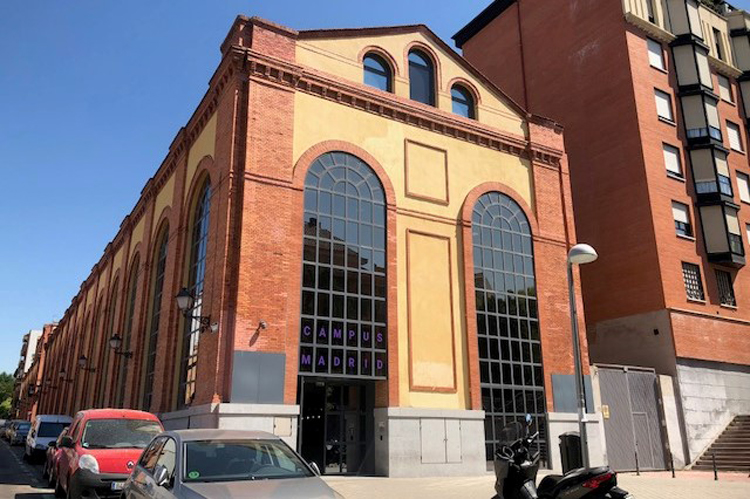Those passionate about traveling the world make efforts to pursue a career lifestyle that allows income possibilities outside of a traditional office space. Freelancing and working remotely are becoming more popular… and possible! The number of remote jobs available increases each year as more individuals seek out this lifestyle. According to Upwork Global, a platform for freelancers to find opportunities, “A majority (59%) of hiring managers today are utilizing flexible talent, up 24% from 2017.” The company states that this type of work can be expected to increase by 168% in the next 10 years. A remote worker has the freedom and flexibility to pursue a career that interests them in places that interest them. Why be limited to one location? Location freedom is inspiring and produces more engaged and excited workers.
What It Takes to Work Outside of an Office Environment…

La Industrial, a coworking space in Malasaña | Alicia Crewey
It is not easy to manage your time and work without walls. A good candidate would be hard-working, motivated, passionate, enduring, self-starting, dedicated, and engaging. A strong worker can make their own schedule to get tasks done by due dates. An independent worker goes a step further by being able to get tasks done without due dates. It is important to note that while there are many benefits to the lifestyle, it can be challenging and isolating. The remote lifestyle will require maintaining contacts, looking for new jobs, and being able to manage inconsistent income and the frustrations that come with an inconsistent lifestyle.
Freelance writer Nancy Wigston based in Canada (www.nancywigston.com) says that a benefit is “the opportunity to keep learning about other cultures, countries and people.” If traveling is something that excites and inspires you, a remote lifestyle could be one of the most rewarding fields to invest your time into. Be your own boss. Schedule your own time. Live each day the way that you want to and experience everything you ever hoped to – all while earning an income.
What to Look For When Working While Traveling…

Espiritu 23, a coworking space in Malasaña | Alicia Crewey
Since you only need a laptop and Wi-Fi, good locations to work in are not hard to find. Most city social locations and cafés offer complementary Wi-Fi to customers. These sites can be a comfortable and convenient spot for workers to be productive. Some cities are also offering micro offices, which are coworking spaces for remote workers wishing to be outside of their hotel. In addition to Wi-Fi and space, these sites also offer networking opportunities to renters. This line of work relies heavily on communication and connections.
Another important factor to keep in mind is transportation. Being in remote areas might be nice for relaxation, but if you are trying to enjoy the city life, it is best to be near convenient transportation. You do not want valuable work time being eaten up by transportation struggles.
What Makes Madrid a Special Place For Remote Work?

Remote work can be done from anywhere – a café, an outside seating area, or a coworking space | Alicia Crewey
Madrid is a special city that I have enjoyed for two weeks while working as a traveling journalist. The atmosphere of the city provides an inspiring scene for writing. The culture – the food, music, locals – are all entertaining and fascinating. Madrid also has a very solid metro system that runs long hours. This is convenient and inexpensive for busy individuals that may be on a different time schedule than residents. A metro card with ten ride tickets can be purchased for just €18,30 (about $21.23). The encouragement for a pedestrian lifestyle really lends itself to tourists not feeling out of place while walking around.
The city of Madrid is home to one of seven Google campuses. The Campus Madrid provides a comfortable and relaxing environment for professionals of all kinds. The building offers two levels of free workspace that combine traditional spaces with desks and chairs and more relaxed spaces with couches and tables. Maria of Adalab (http://adalab.es/), a company that trains women in programming and digital development, stated that coworking spaces are ideal for “being near other disciplines and connecting with other professionals.” Maria, an individual utilizing the campus, has worked in Berlin as well as Madrid. The city of Madrid is a great destination because of the weather. Maria goes on to say that “the sun shines all year – making it easy to enjoy time outside.” Remote workers are not interested in being inside an office all day. A city that invites residents and tourists alike to be outside is a must.
Living a remote lifestyle can be challenging, frustrating, but also rewarding. One of the biggest challenges is balancing all areas of life. “Unstoppable Stacey” Wittig, a freelance travel journalist based in Flagstaff, Arizona, says “I always take my work with me while I explore the world, so I am not “on holiday” as many of my friends and family think. I still work 7-10 hours per day, but I get to work in really cool locations. My creative juices flow in the seat of an airplane or in a coffee shop in a remote Spanish village.” Follow her on Instagram @Unstoppable Stacey or at her blogs www.unstoppablestacey.com and www.spiritualwalkingguides.com. As the freelancing field continues to grow, there are increasing numbers of networking and support options. For those interested in pursuing this type of work, it is important that you stay motivated, even when the journey is tough. Persevere and enjoy all that the opportunity has to offer.
| Remote Worker – Emergency Kit
What is important to have while traveling and working? It is important to have everything that you need. Carrying around extra batteries and chargers can get heavy. It might be better for travelers to have devices that have extended battery life. (a) Laptop insurance (b) Adaptors (c) Converters (d) Mouse (with mousepad) that doesn’t require batteries (or extra batteries) (e) Headphones (f) Protective case (for unpredictable weather, accidents, etc.) (g) Portable charger (h) USB stick (i) Paper and pen |

